INTERNACIONAL
GOP bill brewing in House to reform civil litigation sparks opposition from conservative groups
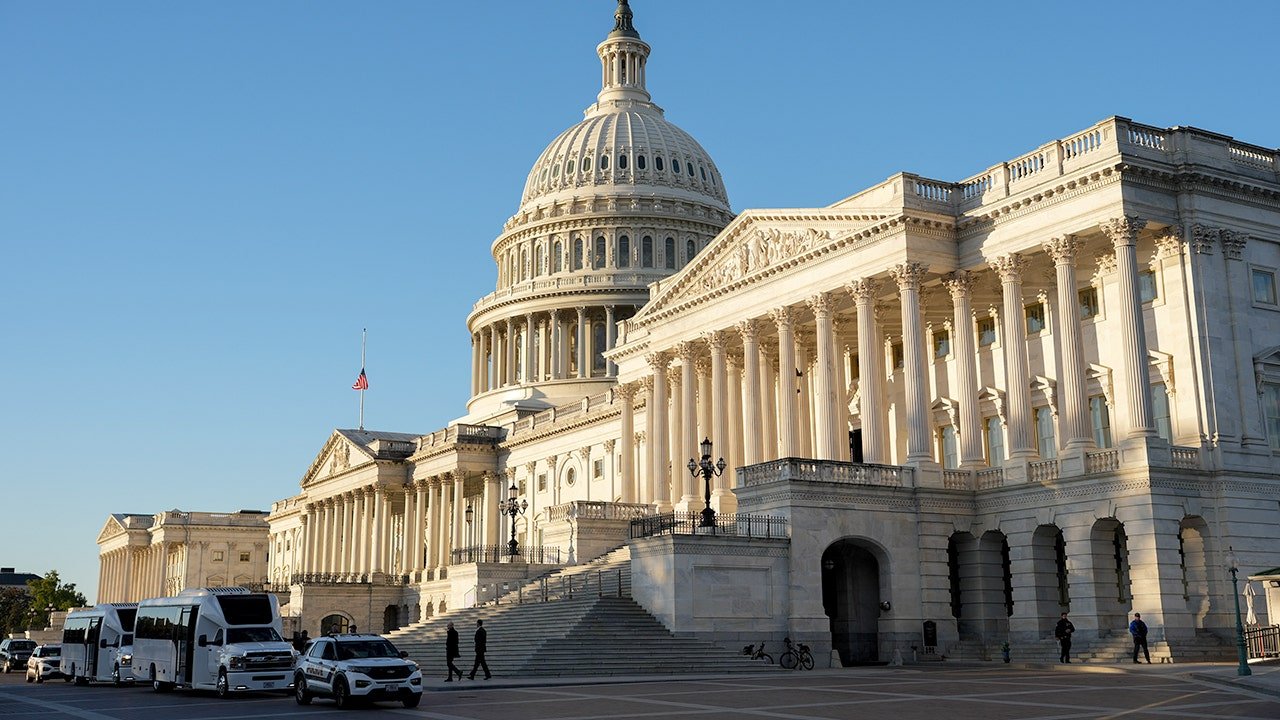
NEWYou can now listen to Fox News articles!
Republican legislation brewing in the House of Representatives aimed at addressing civil litigation transparency is sparking concern from some conservative organizations that fear it could chill donor participation and make it more difficult for Americans of modest means to hold «woke» companies accountable.
In a letter sent earlier this week, Tea Party Patriots Action urged the House Judiciary Committee to reject HR 1109, introduced by GOP Reps. Darrell Issa, Scott Fitzgerald and Mike Collins, which is known as the Litigation Transparency Act of 2025.
It’s aimed at ensuring greater transparency in litigation, requiring parties receiving payment in lawsuits to disclose their identity.
VAN JONES ADMITS WOKE ACTIVISM AT WORK GOT ‘RIDICULOUS’ AND ‘WE NEED TO MOVE ON’
The letter warns that «sweeping disclosure mandates in this bill threaten our core American principles of personal privacy, confidentiality, and freedom of speech and association.»
«This legislation would require litigants to preemptively disclose detailed information about private financial arrangements, such as litigation funding agreements, independent from the discovery process and without any finding of relevance by a judge,» the letter, signed by over a dozen conservative groups, including America First Legal, Defending Education, Heartland Institute and the American Energy Institute, states.
The U.S. Capitol building in Washington, D.C., Nov. 5, 2025. (Eric Lee/Bloomberg via Getty Images)
«The bill’s forced disclosure mandates would broadly apply to any number of political organizations, religious groups, law firms, or individual plaintiffs that rely on outside support to vindicate their rights.
«If adopted, H.R. 1109 will have a chilling effect on free speech and association and directly threaten the privacy rights of Americans,» the letter warns. «The end result will be fewer Americans having the resources or willingness to bring legitimate claims, which threatens to undermine future legal battles over issues critical to our movement.
«The privacy interests at stake here are not abstract. We have seen how disclosure regimes can be easily weaponized by bad actors, particularly those seeking to attack and intimidate political opponents.»
Issa told Fox News Digital Wednesday afternoon there is «misinformation» circulating about what the bill actually proposes to do, and there will be a «small update tomorrow to clarify one item.»
«What’s actually happened is language has been put in to assure groups that we’re not looking to overturn NAACP v. Alabama or any of the other historical 501(c) privileges that you don’t turn over your donor list and so on,» Issa said. «That was something that Obama and Biden tried to do a couple of times. We want nothing to do with that. We’re only asking that if there is a material funder slash partner in a lawsuit, that they be disclosed.
«I fully respect and appreciate the concerns of people who want to make sure that this does not turn into a burdensome discovery of, for example, a nonprofit’s hundreds, thousands or millions of donors.
PALANTIR CEO CLAIMS COMPANY IS FIRST TO BE ‘COMPLETELY ANTI-WOKE,’ BACKS TRUMP ADMIN’S BOMBING OF DRUG BOATS
«We share the concern of all these groups that we wanted to make sure we believed we were on solid ground as written, but in an abundance of caution, my staff and all the parties worked to try to come up with the most straightforward, effective way to say, of course, you don’t have to disclose your donors.»
Proponents of the legislation, including the U.S. Chamber of Commerce, call it a «vital step toward ensuring that our legal system remains a tool for justice rather than being a playground for hidden financial interests.»
In his press release announcing the legislation in February, Issa said, «Our legislation targets serious and continuing abuses in our litigation system that distort our system of justice by obscuring public detection and exploiting loopholes in the law for financial gain.
«Our approach will achieve a far better standard of transparency in the courts that people deserve, and our standard of law requires. We fundamentally believe that if a third-party investor is financing a lawsuit in federal court, it should be disclosed rather than hidden from the world and left absent from the facts of a case.»
The press release explained that hundreds of cases a year involve civil cases funded by undisclosed third-party interests as an investment for return from hedge funds, commercial lenders and sovereign wealth funds through shell companies and that there are often investor-backed entities who seek hefty settlements from American companies that end up «distorting the free market and stifling innovation.»
The conversation about the legislation reignites an ongoing showdown between insurers and large corporations that have made the case that third-party funding drives abusive suits and inflated settlements. Some argue there’s a need for more transparency about those who fund litigation and for limits to speculative investment in lawsuits against advocacy-oriented nonprofits and legal networks. Those groups argue they are the only mechanism for those without deep pockets to take legal action against well-funded companies.
Many advocacy-oriented nonprofits and legal networks simply don’t hand over charitable donations to a lawsuit. Instead, they use structured litigation vehicles, limited liability companies, donor-advised funds or legal defense trusts that front the costs of a case and are reimbursed, sometimes with interest, if the case wins or settles. The process is known as non-recourse or outcome-contingent funding, meaning the investor only gets money back if the case succeeds.
BOMBSHELL REPORT SHOWS FOREIGN CHARITIES DUMPED BILLIONS INTO US POLITICAL ADVOCACY GROUPS, ‘ERODE’ DEMOCRACY
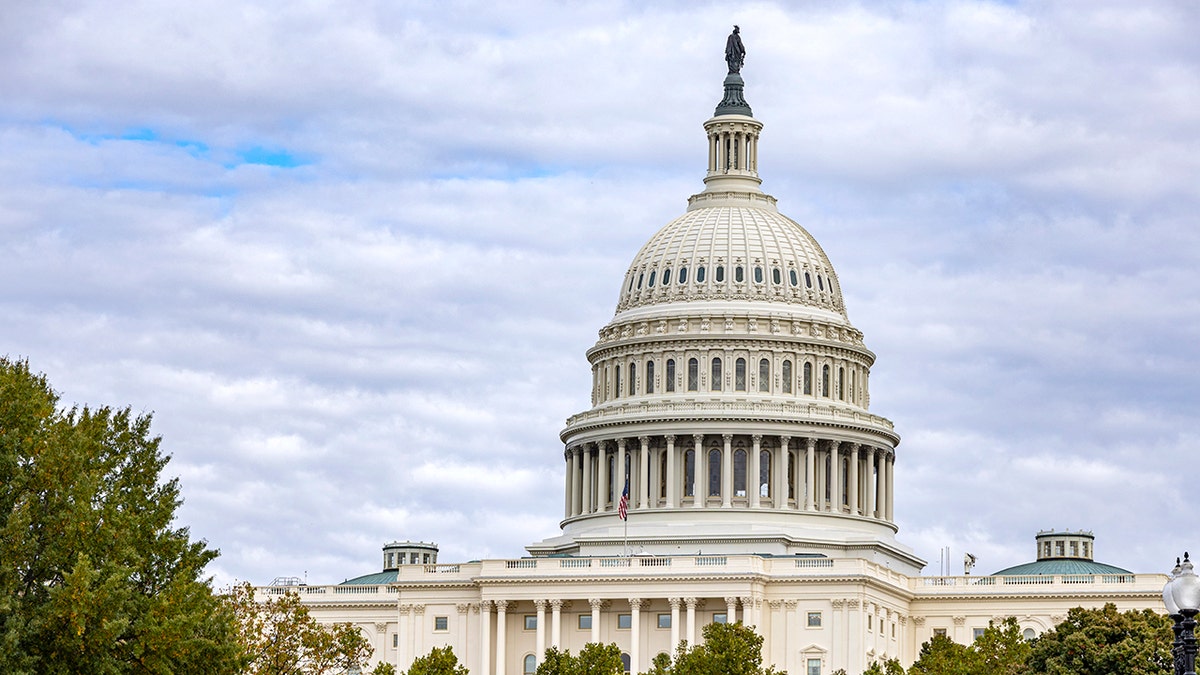
A view of the US Capitol in Washington D.C. (Nicolas Economou/NurPhoto via Getty Images)
Nonprofits like Consumers’ Research have been using litigation finance in recent years to push back against «woke capitalism» to counter ESG and DEI policies. And the group’s executive director, Will Hild, told Fox News Digital it has been «all too easy for major companies to use their outsized influence and powerful market shares to push an ideological agenda with little to no recourse.»
Hild told Fox News Digital he views the legislation as an «attack» on one of the «few tools Americans have to hold powerful, woke corporations accountable.»
Hild added, «Even worse, it imposes dangerous disclosure mandates that would force plaintiffs to expose confidential litigation funding agreements. This bill blatantly tips the scales in favor of woke corporations and makes it far harder for victims to secure the resources they need to fight back.»
The letter from the conservative groups also expresses fear that «compelled disclosure of private financial arrangements would force litigants to unveil the identity of donors — violating donor privacy rights and exposing them to threats of harassment and retaliation.»
In a Tuesday op-ed in The Hill opposing the legislation, Alliance Defending Freedom founder Alan Sears pointed to Supreme Court decisions he says have «affirmed that forced disclosure of private association undermines fundamental freedoms.»
In a statement to Fox News Digital, Rep. Fitzgerald said, «As reiterated to these groups in multiple discussions, it remains Congress’ intent to protect the First Amendment rights of those who contribute to political groups and religious organizations, consistent with the Supreme Court’s opinion in Citizens’ United.»
Organizations that have endorsed the bill have pointed to concerns about foreign funding in courtrooms, specifically from China, including High Tech Investors Alliance, which said in a press release it commends the legislators who put it forward for «defending American businesses against the exploitation of our courts by foreign adversaries and unscrupulous hedge funds.»
«For too long, a lack of transparency has allowed shell entities to manipulate the legal system to prey on American employers, concealing their predatory practices and identities of their financial backers,» HTIA said. «As President Trump takes bold action against aggressive economic maneuvers by China and other countries, Congress must also act decisively to protect our judges and juries from becoming tools in the economic warfare waged by antagonists.»
CLICK HERE TO DOWNLOAD THE FOX NEWS APP
Leonard Leo, who operates a vast network of conservative nonprofits and is linked to Consumers’ Research, told Politico earlier this year that «while there are areas, like mass tort, where litigation financing has been abused and could be reformed, it has always been a critical tool for the conservative movement to advance the public good by taking on the liberal woke agenda.»
The House Judiciary Committee did not mark the bill up Tuesday, and Fox News Digital is told it will be marked up on Thursday at 12 p.m.
«If someone is acting as a principal litigant, either directly or one step removed, then you have a right to face them. You have the right to cross-examine them. You have a right to know if they receive your trade secrets that were exposed and disclosed in litigation. These things are all important,» Issa said.
He added the legislation does not require materials to be turned over to the defendant, and a judge can review them in private.
Issa continued, «We just want to make sure that the judge knows that just as the markman is a required part of determining what a patent means, that it’s a responsibility of the judge to determine who the litigants are and, as appropriate, disclosing them is required. And that last part has always been ignored a little bit. We’re only making sure that that discovery is asked for and evaluated at a minimum by the judge or magistrate overseeing the case.»
politics,house of representatives politics,legislation,in court
INTERNACIONAL
Lo “fácil” sería narrar un episodio de volación tras otro: lo que Neige Sinno hizo con el abuso de su padrastro

Esta entrevista, el encuentro real entre la periodista y la escritora, empieza de una forma muy rara. No con una pregunta, no con un comentario sobre el tiempo o el tránsito, no directo al grano, hablando del libro. La charla, en el patio de un hotel en el centro de la ciudad de Buenos Aires, a metros del Obelisco, arranca cuando la entrevistadora llega, se sienta, busca en su teléfono un poema y le pide a su entrevistada que lo lea. La entrevistada es Neige Sinno, es francesa, viene aquí en la gira de presentación de su libro Triste tigre, donde cuenta -y piensa- que su padrastro la violó desde los 6,7 años hasta los 12. El poema es Tamara Tenembaum, cuyo padre es una de las víctimas del atentado a la AMIA. Nada que ver. Pero…
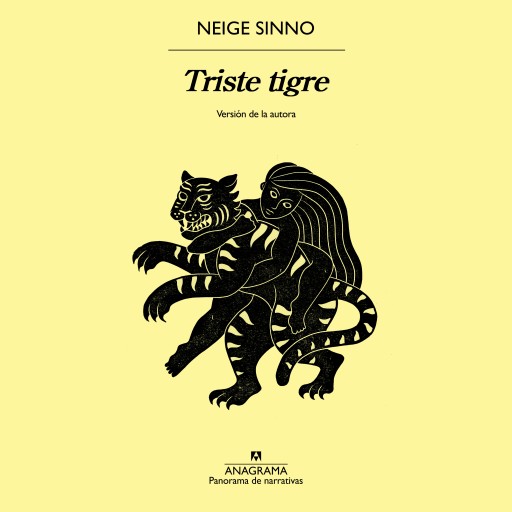
Triste tigre
Audiolibro
El poema dice así: “Hay cosas / que para hacerlas / poemas / solo hay que contarlas. / Mi papá se murió / el día / que fue a la AMIA / a hacer el trámite / para enterrar a su papá / (mi abuelo) / en el cementerio / de La Tablada. / Listo”. Tal vez, piensa la periodista, lo que tiene para contar Sinno es tan enorme, tan fuerte, tan arrasador, que alcance con decirlo. La escritora -habla perfecto castellano, vivió en México- lee, dice “Guau”. Pero…
-Esa es la maldición, ¿no? -dice.
-Claro, no poder hablar.
-La idea de que no hay nada más que decir.
-¿Contra eso es Triste tigre?
-Es como una rebelión. La vocación de escritor es querer contar a pesar de todo. En algún momento pensar que no el mío no era un buen punto de vista. Estaría mejor estar un poquito de lado, ser la hermana… o alguien que vio. A nivel escritura sería más interesante. Y no, pues, me tocó estar ahí. Pero no me puedo quedar en este “listo”, en este “voilà”, porque hay más.
-¿Qué más?
-¿Qué pasa después? Y después, y después. Como los efectos en cadena que tuvo sobre todo el resto de mi vida, de la vida de esta persona que soy. Pero lo quise hacer es más complejo, como con más capas. Entonces, nos alejamos bastante en algunos momentos de lo que pasó para regresar…
“No solo queremos que se reconozca que existe esa experiencia: queremos castigo para los violadores y queremos que cambien las relaciones de poder. Y ser parte de ese cambio”
-La sensación es que vas descubriendo sentidos y los lectores también. Desde el principio está claro el propósito de no hacer algo solo testimonial y, definitivamente, no hacer algo de impacto, lo que sería muy fácil.
-De algún modo sería muy fácil. Qué raro decir eso, ¿no?
Sí, claro. Lo “fácil” sería narrar un episodio de violación tras otro. Neige no lo hace, aunque algo cuenta y alcanza. Parcamente, pero hay imágenes insoportables. Como cuando está mirando fotos de su infancia y dice: “Algunas horas después de las fotos, o antes, me llevó a un cuarto apartado y le hice una felación. No tuve que agacharme, solo estábamos él de pie y yo enfrente, ya que entonces apenas le llegaba a la cintura”. Por si alguien no entendía.
El hombre -nunca dice cómo se llama- se había encontrado con la madre de Neige cuando ella estaba separada, triste, con dos chicos. Y él llega, buen mozo y seductor. De a poco, se va dejando ver: “Es alto y fuerte. Brutal incluso. Su voz pasa fácilmente de la suavidad a la violencia. Cuando algo empieza a enfadarlo, grita. Grita fuerte. Da órdenes”. Él habla de los malos tratos recibidos, la nena en algún momento hasta se compadece. “Durante mucho tiempo lo percibí como un demiurgo, un ser más grande que la vida. Una criatura mitológica, un Sísifo, un Prometeo torturado por sus demonios. Más tarde, echando la vista atrás, pensé que tal vez solo era un pobre tipo que tenía el don de manipular a los demás y que se aprovechó de la vulnerabilidad de alguien aún más débil que él». En la familia lo miman, le dicen que sí para que no se enoje, que no estalle. Eso no es extraño, muchas familias lo hacen.

Pero Sinno, además de buscar qué pasa con este hombre que confiesa en el juicio por violación de una menor, va más allá. El silencio, el poder, el miedo, la sujeción económica, la fuerza de una personalidad que hace que lo traten como “Es un buen tipo que violó a una nena”. Un tipo al que “el mal paso” no lo condena a la soledad: cuando sale de la cárcel una mujer se casa con él y tiene cuatro hijos.
Ella, en cambio, se siente señalada, avergonzada. “El tabú en nuestra cultura no es la violencia sexual en sí, que se comete con frecuencia, sino hablar de ella, pensarla, analizarla”, escribe. Pero seguimos en el patio del hotel:
-La gente te cuenta cosas, sus historias…
-Sí, incluso gente que tiene otros traumas de otro tipo. Hay personas a las que, después de leer el libro, después de un tiempo, le aparecieron ciertas imágenes, recuerdos olvidados y sensaciones extrañas. Como la de estar en un mundo, el mundo real. Pero que a la vez haya otro mundo, como una sombra de este. La sensación de que es completamente absurdo estar aquí hablando contigo y a la vez con lo que vi del ser humano, de la vida. Esa cosa que vi, que me acompaña siempre, no encaja con ir a comprar algo, con ir a pasear… La vida normal.
-Pero no sé qué es la vida normal. Vos hablás con historiadores que te dicen que muchos soldados hacen atrocidades en las ciudades que conquistan “porque pueden”. Uno dice: ¿pero por qué quieren?
– Es decir, que si no lo hacemos es porque no podemos, y que entonces siempre existe este deseo de abusar,si no está controlado. Es una hipótesis muuuuy negra, muy oscura, ¿no?

-Es difícil pensar que todas las personas que tengo alrededor quieren abusar.
-Son hipótesis. Que se van ahí armando y en el libro intento llevar hasta sus últimas consecuencias.
-Pensé que iba a empezar esta entrevista con una sola pregunta que era: “¿De qué querés hablar?“. Bueno, ¿de qué querés hablar?
-De este libro. Durante mucho tiempo realmente no quería escribir eso, no quería estar tanto tiempo con el tema. Luego pensaba que lo iba a transformar mucho más, ficcionalmente.
-Incluso en un momento te preguntás si el testimonio es un género menor o no lo es. Por lo que venía leyendo, hubiera creído que para vos lo era. Y después decís: “No, no, no solo no es un género menor, sino que aparte es necesaria esta imagen explícita”.
-Es que he cambiado de opinión. El libro es también un viaje interior en elq ue cambio de opinión en relación con el género.
-Me imagino que la escritura debe haber tenido momentos emocionales fuertes. No es escribir cualquier cosa.
-Un entusiasmo de escritura que pocas veces he sentido. Que a veces te pasa en una novela cuando ya está superencaminada, como que te levantas en la mañana y sigues lo que has escrito. Desde el principio me pasó, regresamos a México de un viaje de Francia y tenía jet lag, así que aproveché y me levanté a las cinco de la mañana. Y luego lo hice durante varios meses.
“Callarte es como un sacrificio para que se mantenga la estructura. Tú quieres también que siga existiendo tu familia”
-¿A vos te parece que este libro sería bueno para las escuelas?
-Sí, en una lectura acompañada. En Francia ha pasado, lo leyeron mucho en las escuelas porque se ganó un premio que es de los alumnos del último año de secundario. Y, a partir de ahí, lo empezaron a leer jóvenes de la misma edad. Después en algunas escuelas lo censuraron.
-Es un caso que fue a la justicia, él confesó… Y el libro es sutil. Y muy útil cuando contás cómo hablaste con tu hija. ¿Qué vieron para censurarlo?
-Cuando lo hacen, no lo han leído. Pasa con en las conversaciones de amigos también: es vergonzoso simplemente estar cerca de alguien que fue violado.
-¿La vergüenza es tuya?
-Eso es lo común. En todas partes la gente piensa que está protegida: “En esta familia, no”, dicen. “Por suerte, en nuestra familia no nos tocó”. “Por suerte, en nuestra escuela nunca ha pasado nada incómodo” Pero ves las cifras y no puede ser. Si una de cada diez es abusado y tienes 1.700 niños… Son un montón de niños que están viviendo esto en sus casas. Pero la idea no es que lean el libro así nomás sino que estén acompañados por sus profesores, que les den claves de lectura, que se pueda hablar, que haya comprensión.
-¿Cuál es el riesgo?
-Se necesita que que los profes estén dispuestos a recibir testimonios que se van a desencadenar: “A mí en mi casa me pasó tal” o “Qué consejo me puedes dar en la situación tal con el tío”. Sii no lo hacemos en las escuelas, ¿dónde lo vamos a hacer?
-Es un libro contra la ilusión de la autoayuda, la idea de “superar”. Vos decís: “Me violaron de chica esto me constituye, quién lo supera?
-Quería mostrar un poco lo absurdo, a nivel racional, de eso de “superar”. Y además se ha vuelto un cliché. Mi hija, cuando lo regaño de más, me dice: “Supéralo”. Como que ya olvídalo.

-Pero además se vuelve una carga moral hacia la víctima. Si vos no lo superás, es porque te pasa algo. Sí, cómo no me va a pasar…
-Es algo muy dañino para las personas, que tienen la sensación de que están fallando. El libro no es un diálogo con las otras víctimas, pero están ahí. Están ahí las personas que se suicidaron, las personas que no siguieron adelante. ¿Cómo vamos a construir una superioridad moral del que sí lo logra? Es muy probable que sea al revés, que una persona que ve eso que yo vi y decide que no quiere estar en este mundo… No veo el fallo moral. Los puros no pueden seguir, tienes que firmar este pacto con lo ambivalente, lo trágico y reconocer que esto es el ser humano, yo soy un ser humano, esto está dentro de mí. Me lo hicieron, no lo hice yo, pero está dentro de mí, lo vi. Y tomo la decisión de seguir en este mundo con lo que sé. Sin superarlo.
–Sin superarlo.
-¿Porqué voy a superarlo? En la idea de superar está un poco la idea de dejar atrás. Pero puedo tomar algo de las filosofías del desarrollo. Por ejemplo, el concepto de resiliencia de Boris Cyrulnik no habla de superar algo sino de lo que hacemos con eso. Dice que resiliencia no es superar. Resiliencia es vivir con la herida.
-Nunca ponés el nombre.
-Nunca pongo el nombre. Fue una decisión formal, de escritura, aunque tal vez el abogado no me lo hubiera dejado poner. Pero podría haber puesto una inicial.
-Como venganza, digo.
-Sí, también para poner las cosas en su lugar. Pero me gusta que sea amenazante para el lector, que sea como una presencia, como el tigre, como una sombra.
-Lo que marcás es el vínculo: “Mi padrastro”.
-Es el vínculo y, por un otro lado, es algo amenazante porque no sabemos bien quién es. Y luego está bien quitarle protagonismo, un poco. No importa quién es. Como que todo el trabajo del texto es para deshacerme de esta fascinación por el verdugo, por el victimario.
-Hay una pregunta que hacés y es imposible no hacer. La pregunta por tu mamá. ¿No se dio cuenta? ¿Nadie se dio cuenta?
-Nadie se da cuenta ni nadie quiere ver. Porque si lo ves, se derrumba tu mundo. En el libro describo a mi madre como una persona que tomó malas decisiones, que era muy joven. Y luego paro y quiero que el lector, la lectora, se ponga en su lugar. Su versión es que no vio. Tal vez vio, tal vez no vio, no sé. Pero pensemos que es así. No vio absolutamente nada y de repente te cuentan eso… Es para explotarse la cabeza. Y nadie está protegido, ni yo. A pesar de todo lo que hago para que no nos pase, puede pasar que algún día que venga mi hija y me diga… Porque, además, algo muy común es que tú, como víctima, gastes toda la energía que tienes en que nadie se dé cuenta.
-Te hacés responsable de la caída de todos los demás.
-Una cosa sacrificial, un poco. El poderoso elige un lugar vulnerable en la familia, en la estructura, en la escuela, para ejercer su poder. Y tú, como pequeña víctima, no lo sabes a nivel racional, pero ese es tu lugar. Y callarte es como un sacrificio para que se mantenga la estructura, que no se caiga. Tú quieres también que siga existiendo tu familia. Entonces piensas: “Si nadie se da cuenta, yo lo aguanto y no existe y no pasa nada”. Y luego tardas años en entender. Yo tardé muy poco pero hay personas que vienen a las firmas de libros y que me dicen: “Yo tardé treinta años, yo tardé cuarenta años, yo esperé a que estuviera muerto para realmente entender lo que me había hecho”. O sea, es tan común, tan común. Por eso te decía al principio, que existen el mundo normal y el otro. ¿Qué es existir cuando has vivido con una cosa que no existe? Si no lo cuento a nadie, no existe. Pero aun así, sigue pasando. Entonces sientes que tu existencia es algo que no está tan seguro. La sensación de no existir del todo.
-Porque sos parte también de ese mundo que no existe.
-Es algo bonito cuando se puede hablar en espacios públicos. Son personas grandes que dicen que es esta cosa básica de reconocer que lo que vivieron es algo que existe en la experiencia humana y que no los pone fuera de la humanidad. Es un poco consolador, no ser un marginal total de la sociedad humana. Reconocer que existen violaciones de niños en las familias, en las escuelas, en las iglesias. Esto te saca un poquito de esa soledad abismal en la cual estabas. Y a partir del momento en que esto está sobre la mesa, queremos más. No solo queremos que se reconozca que existe esa experiencia: queremos castigo para los violadores y queremos que cambien las relaciones de poder. Y ser parte de ese cambio.
◆ Nació en 1977 en la región de los Altos Alpes.
◆ Vivió un tiempo en Estados Unidos y residió años en México, junto a su pareja y su hija. Ahora vive en el país vasco-francés.
◆ Es traductora y autora de la colección de cuentos La Vie des rats (2007), el ensayo Lectores entre líneas: Roberto Bolaño, Ricardo Piglia y Sergio Pitol (Aldus, 2011, Premio Lya Kostakowsky) y la novela Le Camion (2018).
◆ Tras su publicación en Francia, Triste tigre se convirtió en un fenómeno editorial y obtuvo premios como el Prix littéraire Le Monde, el Prix Blù Jean-Marc Roberts, el Prix Les Inrockuptibles, el Prix Goncourt des Lycéens y el Prix Femina en 2023, además del Grand Prix des Lectrices Elle y el Premio Strega Europeo en 2024 por su traducción italiana.
INTERNACIONAL
86 Dems vote with Republicans to condemn socialism in wake of Mamdani’s mayoral victory
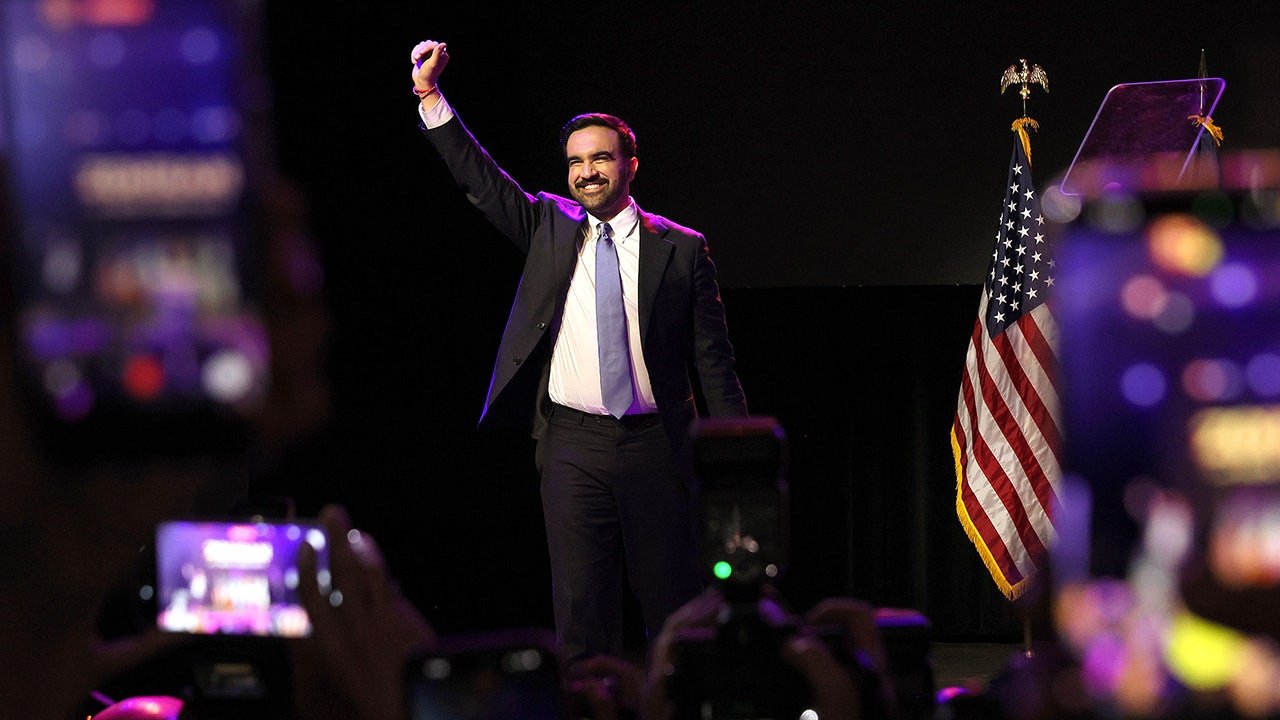
NEWYou can now listen to Fox News articles!
The House of Representatives overwhelmingly voted in favor of a resolution condemning socialism Friday morning, with several Democrats crossing the aisle to rebuke «socialist policies» in the U.S. following Zohran Mamdani’s recent election as the mayor-elect of New York City.
Eighty-six Democrats joined Republicans in supporting the measure in a 285-98 vote. Two members, Rep. Deborah Ross, D-Pa., and Rep. Janelle Bynum, D-Ore., voted present.
Notably, House Minority Leader Hakeem Jeffries, D-N.Y. — who endorsed Mamdani just days before the mayoral election — also voted in favor of the measure.
The resolution, introduced by Rep. Maria Salazar, R-Fla., highlights a list of the economic system’s failures and serves as a rebuke of political forces inching toward more socialist platforms. Among other items, it asserts that socialism has led to famine and mass murder under the Cuban Castro regime, the Chinese rule of Mao Zedong, the ongoing Venezuelan regime of Nicolás Maduro and others.
«Resolved by the House of Representatives that Congress denounces socialism in all its forms and opposes the implementation of socialist policies in the United States,» the text reads.
SOCIALIST WAVE GOES COAST-TO-COAST AS HISTORIC WINS SHAKE UP THE 2025 MAYORAL ELECTIONS
Rep. Maria Salazar, R-Fla., speaks during a roundtable discussion at the U.S. Capitol in Washington on Mar. 3, 2025. (Kayla Bartkowski/Getty Images)
While the resolution itself isn’t binding, the congressional rebuke comes as socialism — and its political momentum — have taken up a larger share of the national spotlight in recent months.
Progressive candidates like Bernie Sanders, I-Vt., Alexandria Ocasio-Cortez, D-N.Y., and others have continued to push for an increased government role in public services like healthcare and education. That’s dovetailed with new champions of progressive policies like Mamdani, a self-described socialist.
The resolution also comes as Mamdani is set to meet with President Donald Trump on Friday.
Rep. Byron Donalds, R-Fla., said he believes socialism is incompatible with the American ideal of freedom. He applauded the resolution on Friday morning.
«It always leads to a destruction of liberties for people,» Donalds said of socialism.
DEMOCRATS DID START THE FIRE OF SOCIALISM. NOW, THEY ARE AFRAID IT WILL BURN THEM
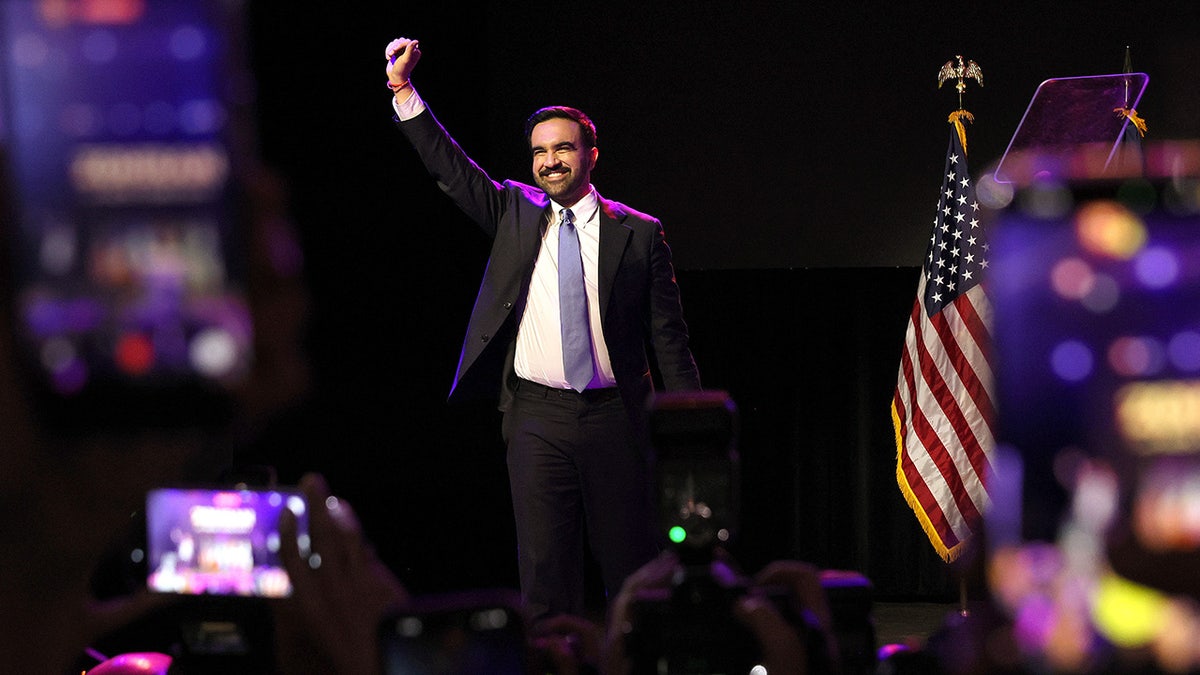
New York City Democratic Mayor-elect Zohran Mamdani celebrates as he takes the stage at his election night watch party at the Brooklyn Paramount in New York City on Nov. 4, 2025. (Michael M. Santiago/Getty Images)
He noted that socialism requires a top-down structure of authority to manage the distribution of resources. That, he believes, is a trait shared by other forms of oppressive government.
«We have a responsibility to defend the American core of capitalism, free markets and liberty [against] socialism, democratic socialism, communism, authoritarianism, fascism,» Donalds said.
While increasingly progressive wings of the Democratic Party have enjoyed momentum in recent months at a time when the party has struggled to unite behind a cohesive brand, not all Democrat lawmakers view socialism’s emergence as something the party should embrace.
Rep. Tom Suozzi, D-N.Y., one of the members who voted for the disapproval resolution on Friday, has opposed overtly socialist platforms, urging his Democrat colleagues to return to a more centrist path.
REPUBLICANS PUSH TO MAKE MAMDANI THE NEW FACE OF THE DEMOCRATIC PARTY

Rep. Tom Suozzi, D-N.Y., speaks during a Congressional Gold Medal ceremony on Capitol Hill in Washington on Sept. 3, 2025. (Andrew Harnik/Getty Images)
CLICK HERE TO GET THE FOX NEWS APP
«I talk about being a new kind of old-fashioned Democrat and giving policy prescriptions about what we need to do to address people’s concerns about the economy and affordability and the cost of living and wages,» Suozzi wrote on X earlier this month. «The answer is not the populism of Donald Trump or Zohran Mamdani — it’s about giving specific policy prescriptions.»
politics,congress,socialism
INTERNACIONAL
Mientras el mundo busca energías limpias, millones siguen sin tener electricidad






























